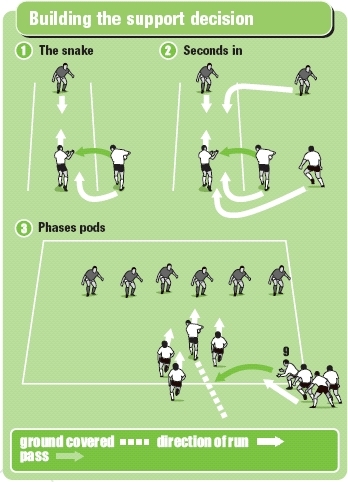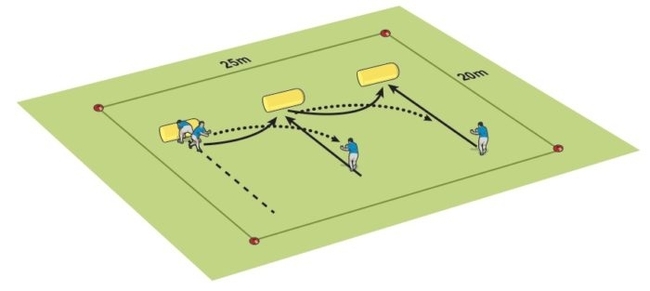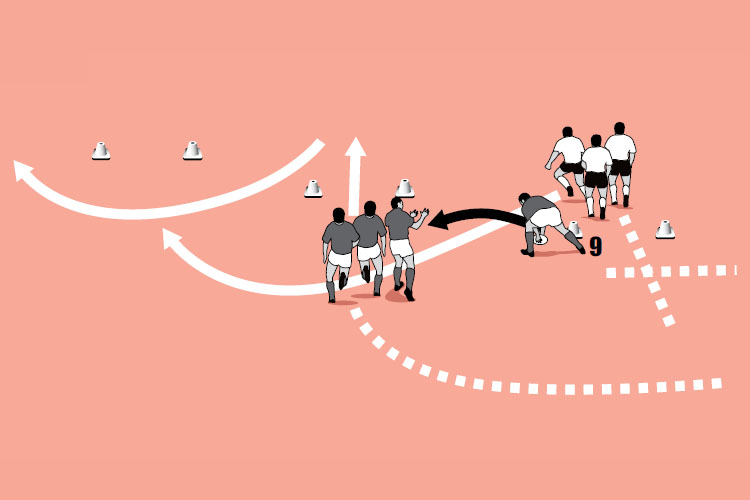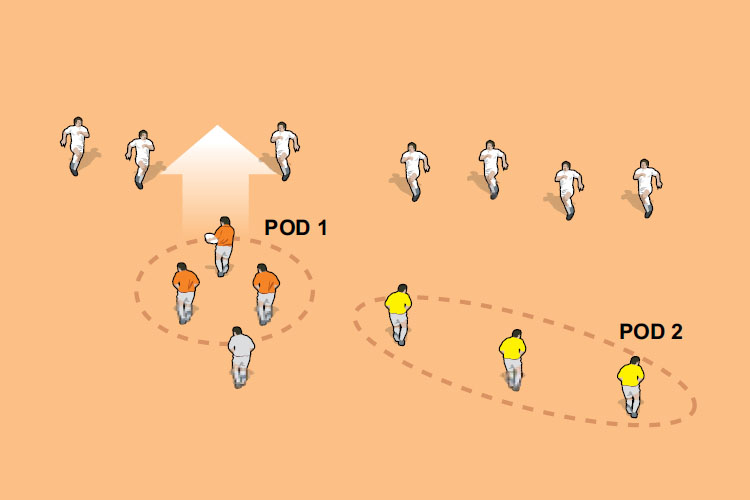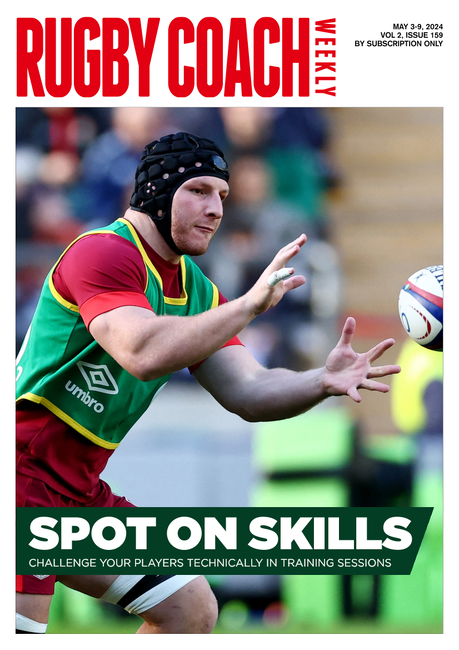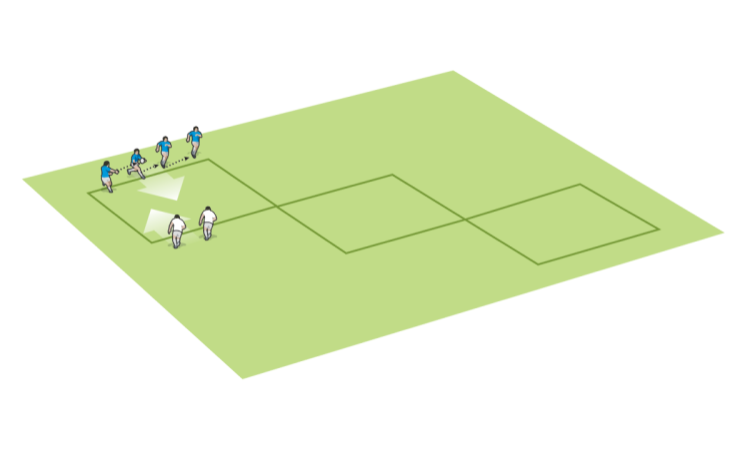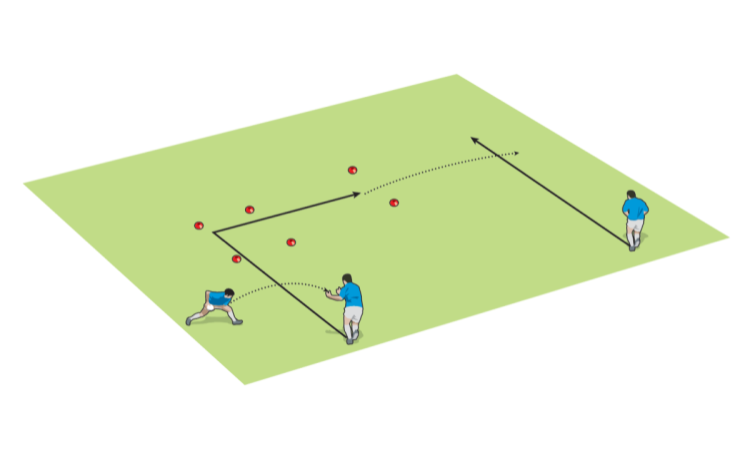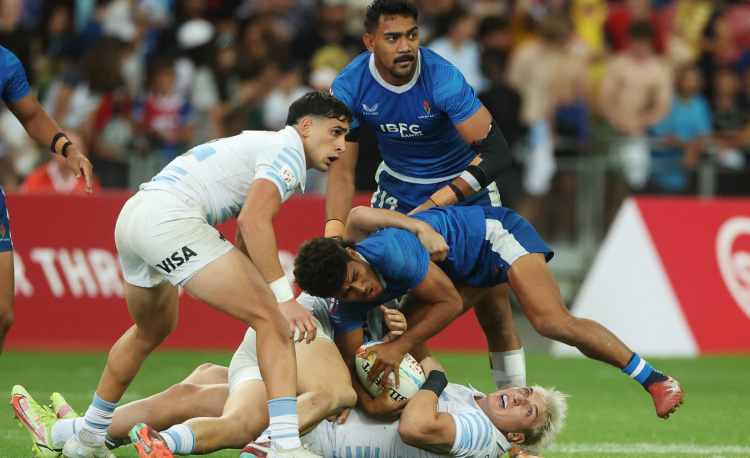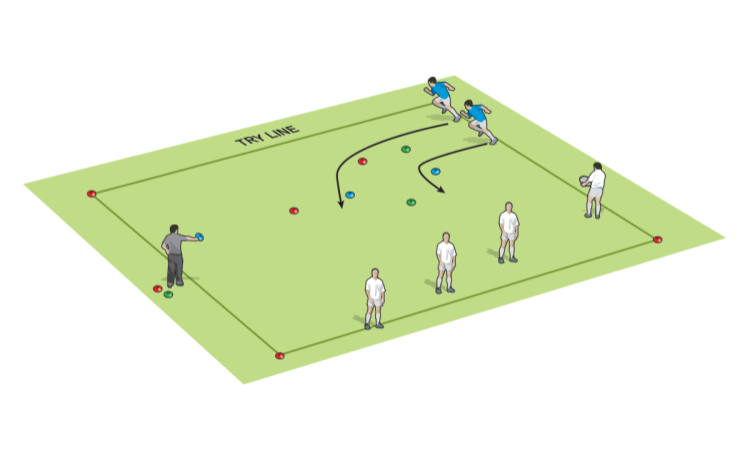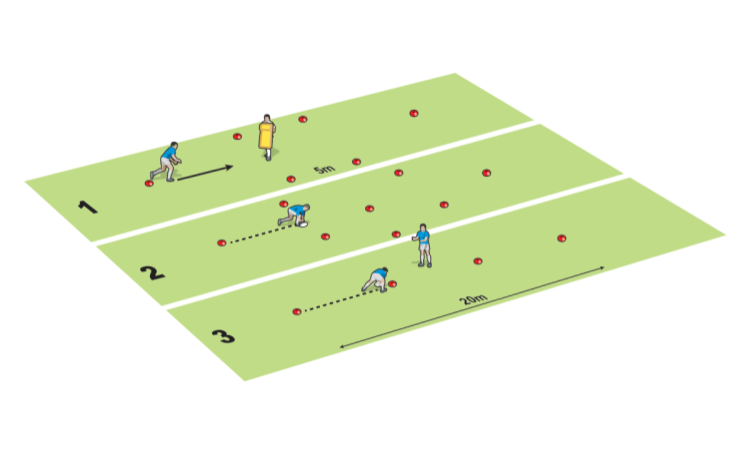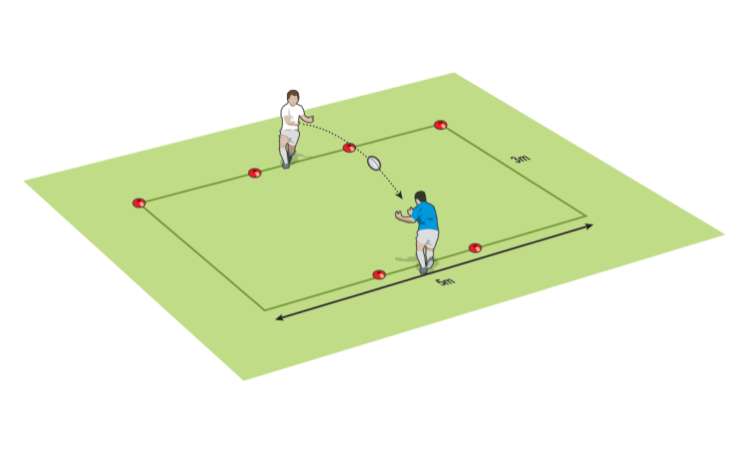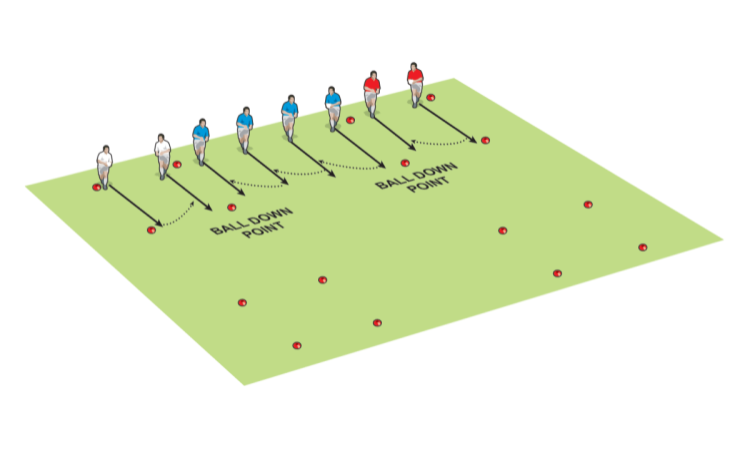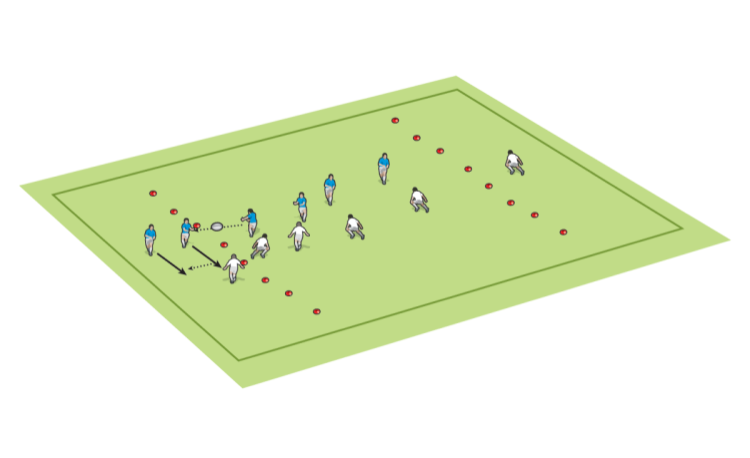You are viewing
1 of your 2 free articles
Train pods to break down organised defences
Attack Tacticsby Dan Cottrell
Against an organised defence, you can use closely packed groups of forwards to dent the line and then attack the recovering, disorganised defence. Often known as pods, this requires organisation, especially around the roles of the players in terms of carrying the ball and supporting that ball carrier.
In its simplest format, after a set-piece like a scrum or lineout, the forwards who were not involved in winning the ball back after the first tackle, realign to take the next pass. This is in the expectation that the backline doesn't penetrate the line the first time.
Normally, the defence will be able to set themselves in some form of organised structure after this first tackle. If this is the case, then a pod play can be effective.
First, the "pod" players need to have the right mindset. That is, they want to beat the defenders in front of them. Use the three activities in Develop support players understanding around pods to build up the ball carrier and support player skills.
A good attacking pod will create quick ball. Your 9 has to clear the ball quickly to the next group of players who are resetting ready for the ball. The roles of all these players can be explored in Develop the 9 pass under pressure.
To take this to the next stage, you can start to create a system. Pod attack and Pod rugby are full sessions that you can employ to develop your tactical plan.
The pod systems still rely on good skills, quick decision-making and above all, understanding the purpose of this set up. You are trying to disorganise an organised defence. As soon as it is disorganised, then the players should be playing to the weaknesses and spaces.
In its simplest format, after a set-piece like a scrum or lineout, the forwards who were not involved in winning the ball back after the first tackle, realign to take the next pass. This is in the expectation that the backline doesn't penetrate the line the first time.
Normally, the defence will be able to set themselves in some form of organised structure after this first tackle. If this is the case, then a pod play can be effective.
First, the "pod" players need to have the right mindset. That is, they want to beat the defenders in front of them. Use the three activities in Develop support players understanding around pods to build up the ball carrier and support player skills.
A good attacking pod will create quick ball. Your 9 has to clear the ball quickly to the next group of players who are resetting ready for the ball. The roles of all these players can be explored in Develop the 9 pass under pressure.
To take this to the next stage, you can start to create a system. Pod attack and Pod rugby are full sessions that you can employ to develop your tactical plan.
The pod systems still rely on good skills, quick decision-making and above all, understanding the purpose of this set up. You are trying to disorganise an organised defence. As soon as it is disorganised, then the players should be playing to the weaknesses and spaces.
Newsletter Sign Up
Coaches Testimonials

Gerald Kearney, Downtown Las Vegas Soccer Club

Paul Butler, Florida, USA

Rick Shields, Springboro, USA

Tony Green, Pierrefonds Titans, Quebec, Canada
Subscribe Today
Be a more effective, more successful rugby coach
In a recent survey 89% of subscribers said Rugby Coach Weekly makes them more confident, 91% said Rugby Coach Weekly makes them a more effective coach and 93% said Rugby Coach Weekly makes them more inspired.
Get Weekly Inspiration
All the latest techniques and approaches
Rugby Coach Weekly offers proven and easy to use rugby drills, coaching sessions, practice plans, small-sided games, warm-ups, training tips and advice.
We've been at the cutting edge of rugby coaching since we launched in 2005, creating resources for the grassroots youth coach, following best practice from around the world and insights from the professional game.
More from us
© 2023 Rugby Coach Weekly
Part of Green Star Media Ltd. Company number: 3008779
We use cookies so we can provide you with the best online experience. By continuing to browse this site you are agreeing to our use of cookies. Click on the banner to find out more.
